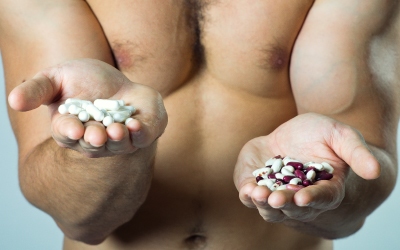Are Performance-Enhancing Supplements Worth the Risk?
Muscle-building supplements or other performance-enhancing drugs are often popular products in the fitness market, but could you be risking your wellbeing just to get that competitive edge? Before you take any supplements, you need to know exactly how they work and what they might do to your wellness.
Anabolic steroids: There are some athletes who take anabolic steroids such as testosterone to increase muscle mass and strength, but although there are approved medical uses for taking the synthetic hormone, improving athletic performance is not one of them. You also have a particularly dangerous class of anabolic steroids known as designer drugs, which have been designed to fly under the radar in the case of drug testing. These have no medical use, have not been tested or approved by the Food and Drug Administration (FDA) and represent a particular health threat to athletes.
If you are on anabolic steroids, you may be at risk to:
- Baldness
- Severe acne
- tendinitis and tendon rupture
- Liver abnormalities and tumours
- Increased “bad” LDL cholesterol and decreased “good” HDL cholesterol
- High blood pressure and problems with your heart and circulation
- Prostate gland enlargement
- Aggressive behaviour, rage or violence
- Psychiatric disorders, such as depression
- Drug dependence
- HIV or hepatitis (if you’re injecting the drugs)
Plus, teenagers face the added risk of future health problems, as well as inhibited growth and development. Men specifically may experience the development of prominent breasts, testicle shrinkage, infertility and impotence, while women are at risk of developing a deeper voice, clitoris enlargement, increased body hair and infrequent or absent periods.
Androstenedione: You produce this hormone in your adrenal glands, ovaries and testes, and your body converts it into testosterone and estradiol. Although manufacturers claim using andro as a supplement can help you train harder and recover more quickly, it is illegal for use in the US, and studies show that the supplement doesn’t even work – so there’s no point taking it. In fact, andro increases your oestrogen, rather than your testosterone, production. Plus, you’re putting your wellbeing at risk to:
- Acne
- Decreased “good” HDL cholesterol, which raises your risk of stroke and heart attack
- Diminished sperm production and testicle shrinkage (men)
- Breast enlargement (men)
- Voice deepening and male-pattern baldness (women)
Human growth hormone: Also known as gonadotropin, human growth hormone has an anabolic effect, meaning it is taken by athletes to improve muscle mass and performance. Science is yet to prove that human growth hormone actually does either of these things, and you can only get the injections on prescription. The adverse side effects of human growth hormone range in severity, but you may be at risk to:
- Joint pain
- Muscle weakness
- Fluid retention
- Carpal tunnel syndrome
- Impaired glucose regulation
- Cardiomyopathy
- High cholesterol and blood pressure
- Diabetes
Erythropoietin: If your wellness has been affected by severe kidney disease, this hormone may be used to treat your anaemia, as it increases your body’s production of red blood cells and haemoglobin. Epoetin, a synthetic form of erythropoietin, is commonly used by endurance athletes to give the muscles more oxygen, and cyclists in the 1990s famously used the supplement. However, it was alleged that this contributed to at least 18 deaths, as the inappropriate use of erythropoietin can increase your risk of thrombotic events, such as stroke, heart attack and pulmonary oedema.
Diuretics: These drugs are often used to lower your weight, but they change your body’s natural balance of fluids and salts (electrolytes) and can lead to dehydration. At any dose – even medically recommended ones – you may be putting yourself at risk to:
- Dehydration
- Muscle cramps
- Exhaustion
- Dizziness
- Fainting
- Potassium deficiency
- Heart arrhythmias
- Drop in blood pressure
- Loss of coordination and balance
- Heatstroke
- Death


Comments are closed.